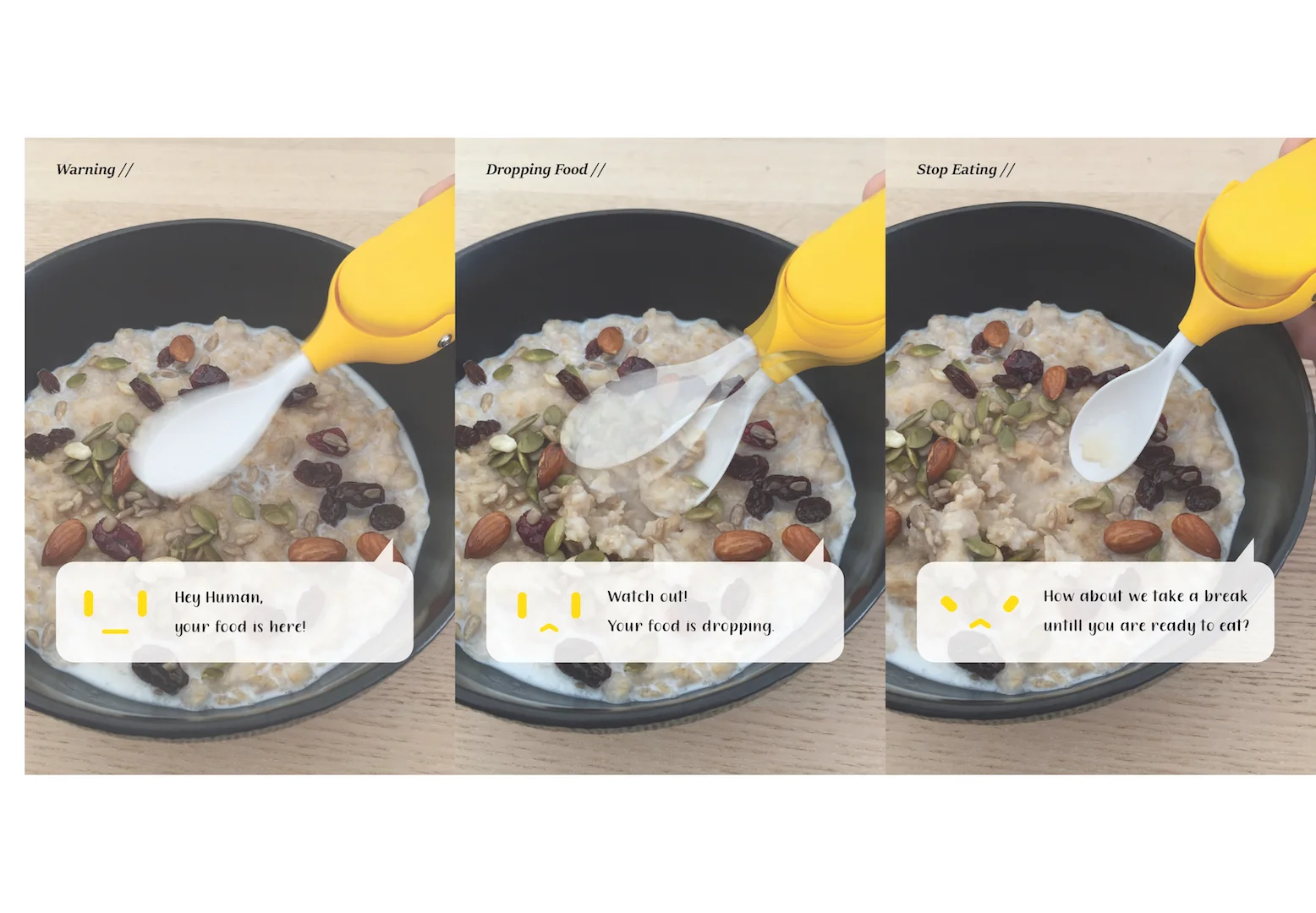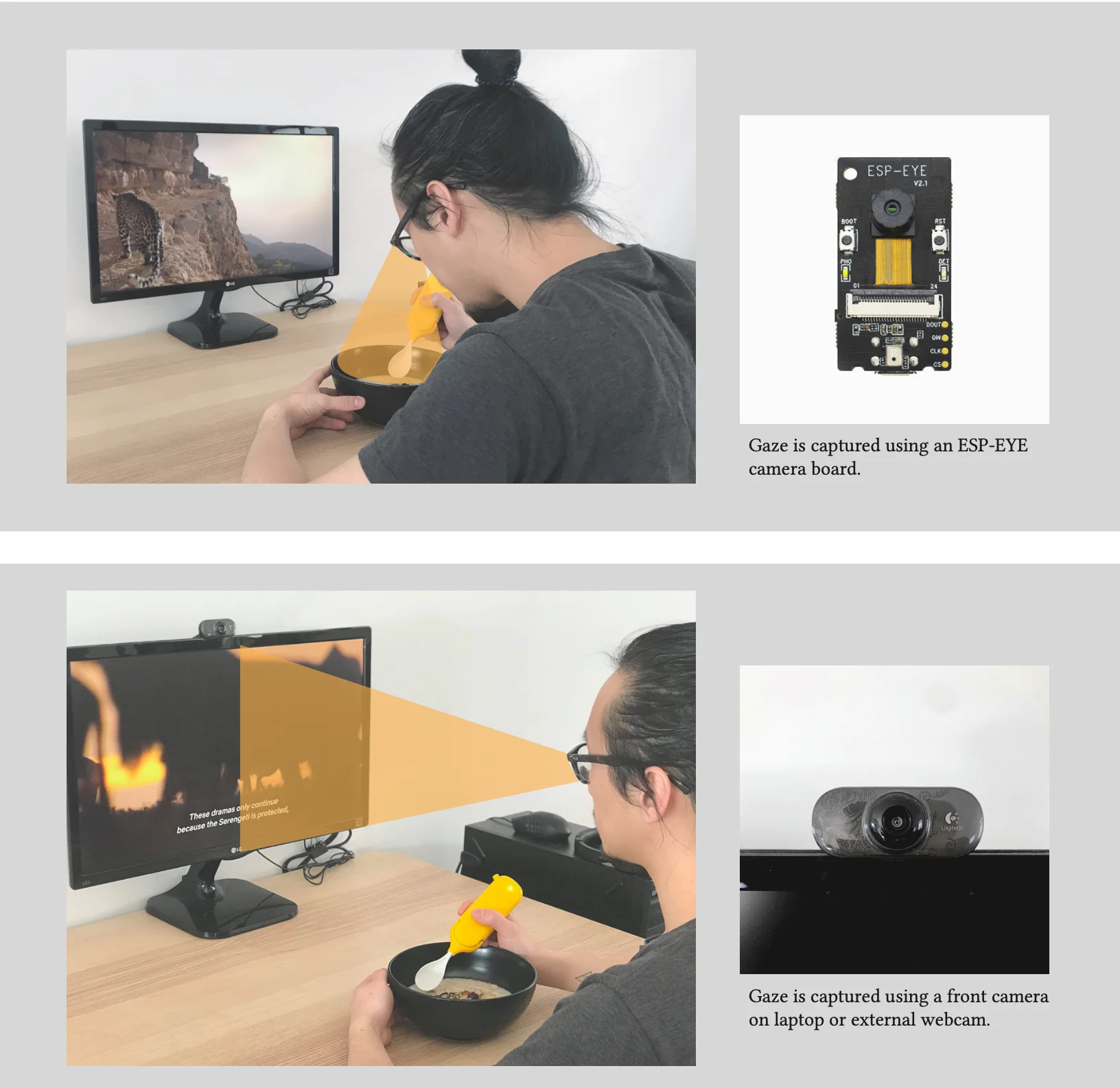SWAN
Made with ❤️ by Rohit Ashok Khot & Jung-Ying (Lois) Yi

SWAN, the world's first augmented spoon, revolutionizes the way we approach our meals. In a society where screens dominate our attention, SWAN acknowledges this reality and offers a playful solution to bring mindfulness back to our eating habits. Through its three moves, SWAN captures our gaze and redirects it towards the food. The "Redirect" move grabs our attention with rapid movements, reminding us to focus on what's in front of us. If we still find ourselves distracted, SWAN takes a bolder step with the "Drop" motion, dropping the food from the spoon as a gentle reminder to be present in the moment. And if we persist in our distraction, SWAN takes a stand with the "Refuse" move, leaning back and refusing to pick up the food until we give it the attention it deserves.
This innovative design is not just a whimsical gadget. It is backed by years of research in food psychology and sociology, ensuring that it effectively influences our eating habits. By continuously exposing us to cues that trigger mindfulness, SWAN gradually helps us eliminate unhealthy eating behaviors. SWAN doesn't deny the allure of screen-based media; instead, it repurposes their presence to guide us towards a more mindful eating experience. It understands the challenges we face in today's digital age and offers a contextual and appropriate solution. So, let SWAN be your companion at the dining table, reminding you to savor each bite, appreciate the flavors, and truly engage with your food. With SWAN, mindfulness becomes a playful and enjoyable part of your mealtime routine.
What makes SWAN unique?
SWAN emerges as a groundbreaking leap in redefining the dynamics of mindful eating. It stands tall as the world’s first augmented spoon, meticulously designed to captivate attention and instill mindfulness during mealtime.
SWAN in Action
Provocative Mindfulness in a Screen-Driven World
SWAN confronts the escalating conflict between the allure of screen-based media and the principles of mindfulness. The undeniable reality is that many struggle to enjoy a meal without being engrossed in some form of screen-based entertainment. This behavior disrupts the body's natural signals of satiety and hunger, contributing to issues like overeating, obesity, and heart disease. SWAN doesn't deny the prevalence of screen-based media; instead, it embraces it and strategically redirects attention to the act of eating, fostering mindfulness in dining habits.
Contextual Appropriateness
SWAN's approach is not only playful but also contextually relevant. Instead of opposing the use of media during meals, SWAN strategically repurposes it to cultivate mindfulness. The software interface employs cutting-edge machine learning algorithms, while the hardware is crafted from food-grade materials for safety and comfort. SWAN maintains ecological and social validity by mimicking the physical dimensions of standard spoons, ensuring a familiar and comfortable grip.
Comfortable, Subtle, and User-Centric
SWAN prioritizes user comfort and discretion. Designed to mimic standard spoon dimensions, it ensures a comfortable grip while being eco-friendly. The subtle nudges provided by SWAN do not disrupt the natural flow of a meal, avoiding any patronizing elements. The wireless and battery-operated design, with covered electronic components, ensures a seamless, hassle-free dining experience. SWAN isn't just a utensil; it's a bold step towards reshaping the way we approach eating in a tech-saturated world. With its innovative design, grounded research foundation, and commitment to user comfort, SWAN stands as a beacon of change in promoting mindful eating habits and fostering a healthier relationship with food.




